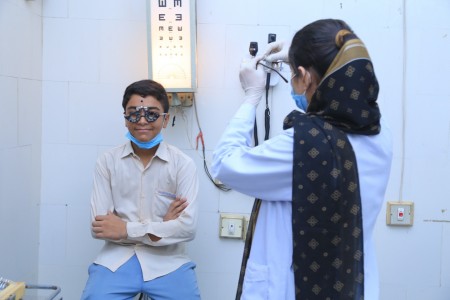Untreated vision loss can prevent a child from learning effectively, damage their long term prospects and negatively affect their wellbeing. Children with poor eyesight in low- and middle-income countries are up to five times less likely to be in formal education.
Yet around 450 million children worldwide are living with a sight condition that needs treatment. Short-sightedness (myopia) in children is rapidly increasing in many parts of the world. That’s why World Sight Day 2024 highlights the critical importance of prioritising child eye health.
Peek Vision is supporting its partners to increase access to eye health services for children across Africa and Asia, as well as providing valuable data insights for planning and global advocacy.

14 year old Ayush with his parents, wearing the glasses he received through the Peek-powered Dr Shroff’s Charity Eye Hospital programme. Credit: Dr Shroff’s Charity Eye Hospital/Peek Vision
Ayush’s story
“I love school and I love learning – my favourite subject is maths.” says 14 year old Ayush, who lives with his family in a rural village in Uttar Pradesh in northern India. “My dream one day is to go to college and to join the army like many others in my family.”
But when Ayush started getting headaches everyday it began impacting his school work. “It was always hurting. I could still see the blackboard but I would have a horrible headache by the end of the day.” His parents didn’t know what was causing the pain and worried that taking him to a health centre might result in lengthy and expensive tests.
Then a screener for Dr Shroff’s Charity Eye Hospital came to Ayush’s village as part of a Peek-powered community eye health programme. The screener used Peek’s clinically validated app to test Ayush’s vision and determined that he had a problem with his distance vision that was likely to be causing his headaches. He then used the Peek app to refer Ayush to a local vision centre to be assessed for a pair of glasses.
“My father took me the next day on his motorcycle to the vision centre and I was given a pair of glasses. When I tried on my glasses for the first time I was very happy! Now I can see very far away”, says Ayush. “My schoolwork is much easier and I can play cricket much better. Most importantly, the headaches are gone.
“If I had one message to anyone else who might need glasses it would be that you should definitely listen to the screener and go pick them up. They have been so helpful.”
Connecting children to eye care services at scale
Dr Shalinder Sabherwal is Director of Public Health and Projects at Dr Shroff’s Charity Eye Hospital, which is one of the oldest and largest eye care institutions in India. “We see a lot of conditions in children which could be easily corrected, and uncorrected refractive error is a growing issue,” he says. “So it is really important to give children access to eye care at the school level or community level and introduce programmes where both the children and parents are given access and awareness.”
Peek’s software helps solve this problem by enabling screeners to easily and accurately check vision in schools, communities and homes, referring those who need it to further care. The platform enables programme managers to follow the patient journey from screening to treatment, and provides data insights to help uncover any barriers to care. Dr Shroff’s Charity Eye Hospital is using Peek to reach children and adults in community eye health programmes in Mohammadi and Rajasthan.
Globally, Peek is being used by governments, NGOs and eye hospitals across 12 countries in Africa and Asia. More than 3.4 million children have been screened using Peek through dedicated school eye health programmes and in the community. Over 330,00 children identified with an eye health need have been connected to care.
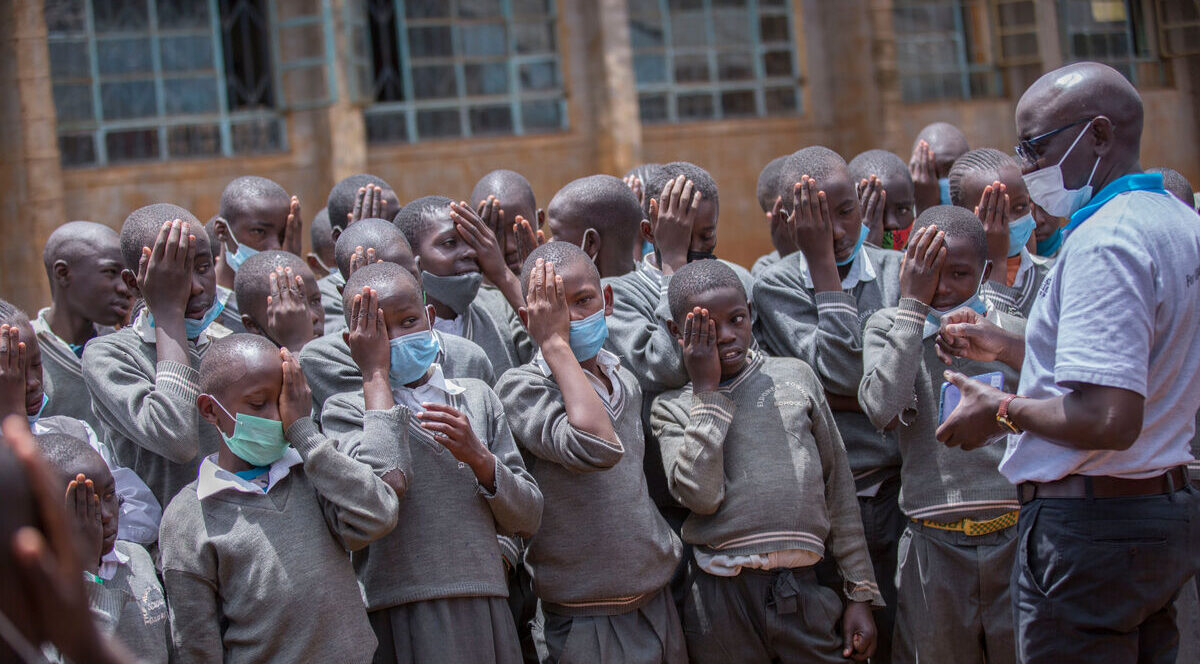
A group of Kenyan school children practise covering one eye ahead of having their vision tested using Peek’s clinically validated app. Credit: Operation Eyesight Universal/Peek Vision
Addressing the data gap
But even for experienced programme managers, it can be challenging to plan effective school eye health programmes when reliable information about children’s eye health needs in their region is scarce.
That’s why Peek developed the School Eye Health Rapid Assessment tool (SEHRA), in consultation with a global advisory board of leading eye health experts.
“SEHRA gathers context-specific data to help programme managers plan, implement and monitor effective school eye health programmes,” says Peek’s Dr Priya Morjaria who led the development of SEHRA. “It’s made up of two components: the Scoping module helps evaluate an environment’s readiness to create a school eye health programme, and the Magnitude module uses a rapid sampling methodology to provide an accurate estimate of the eye health needs of school-going children in a given district or region.
SEHRA is designed to be a practical tool to help the eye health organisations which work so tirelessly to advance school eye health.”
Dr Priya Morjaria
Head of Global Programmes at Peek Vision
After two years of development and four pilot studies, SEHRA launched in 2023. SEHRAs have since been completed or are being planned in around 10 locations worldwide.
Sightsavers worked with Peek to conduct a SEHRA in Maryland county, Liberia in 2023. The survey was conducted by a team of Sightsavers staff with training and analysis support provided by Peek Vision.
“The Peek-powered SEHRA tool has provided us with invaluable data to help us scale our School Health Integrated Programme in Liberia more effectively,” says Sumrana Yasmin, Sightsavers’ Deputy Technical Director for Eye Health. “We welcome this new tool, which assists in designing, planning, implementing, and monitoring a school eye health programme to ensure that every child has access to the vision care they need to lead a productive and fulfilling life.”
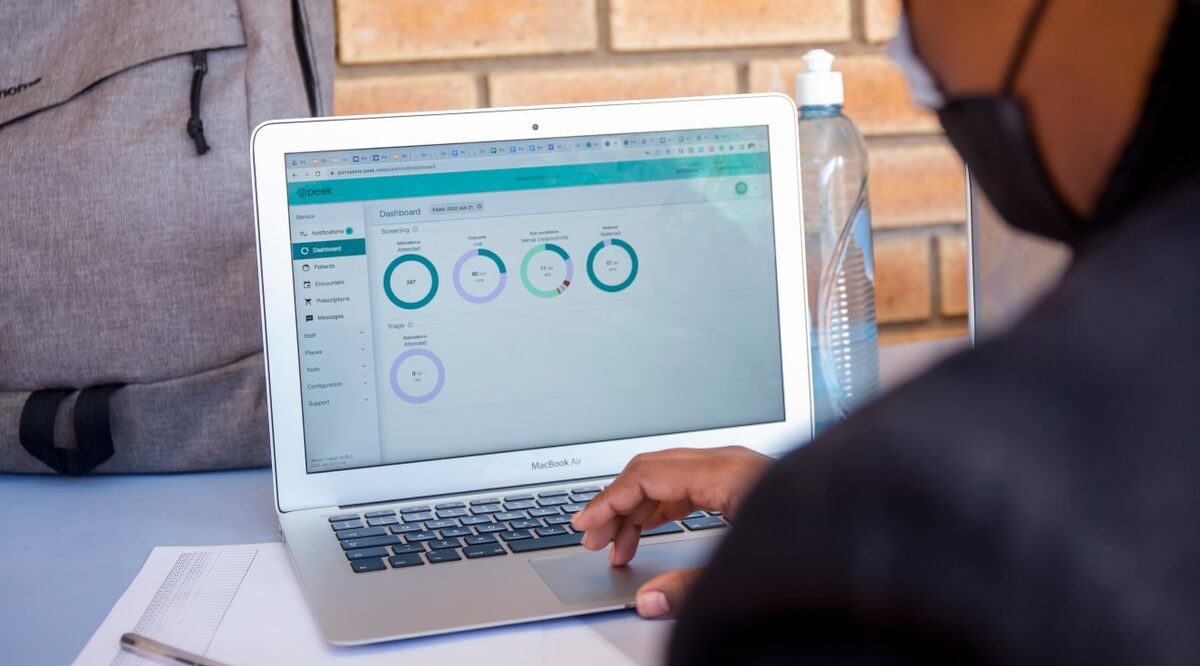
The Peek data intelligence platform showing a dashboard to monitor the progress of an eye health programme. Credit: Peek Vision
Building a clearer picture through the power of data
Beyond the context specific information provided by SEHRA, the rich data captured in numerous Peek-powered programmes is delivering valuable insights into unmet child eye health needs across districts, countries and regions.
“By analysing data across Peek-powered eye health programmes we can identify the prevalence and disparities in eye conditions among different age groups, genders, and in different geographical locations”, says Dr Sergio Latorre Arteaga, Head of Data Insights at Peek Vision.
“We see there are substantial variations in school-aged children’s eye care needs between countries and regions. Being able to access this data, and combining it with survey data from rapid assessments such as SEHRA, will help policy makers and eye health services make the case for funding and more effectively allocate resources. The success of these services is at risk if they can’t attract funding, so it’s critically important that they have access to the data they need to make their case.
I’m positive that data will continue to be a powerful tool for the global eye health community, which can make a real difference to how services are delivered and ultimately improve the eye health of children worldwide.”
Dr Sergio Latorre Arteaga
Head of Data Insights at Peek Vision
World Sight Day is coordinated by the International Agency for the Prevention of Blindness (IAPB) under the Love Your Eyes campaign banner. Find out more about the 2024 campaign.
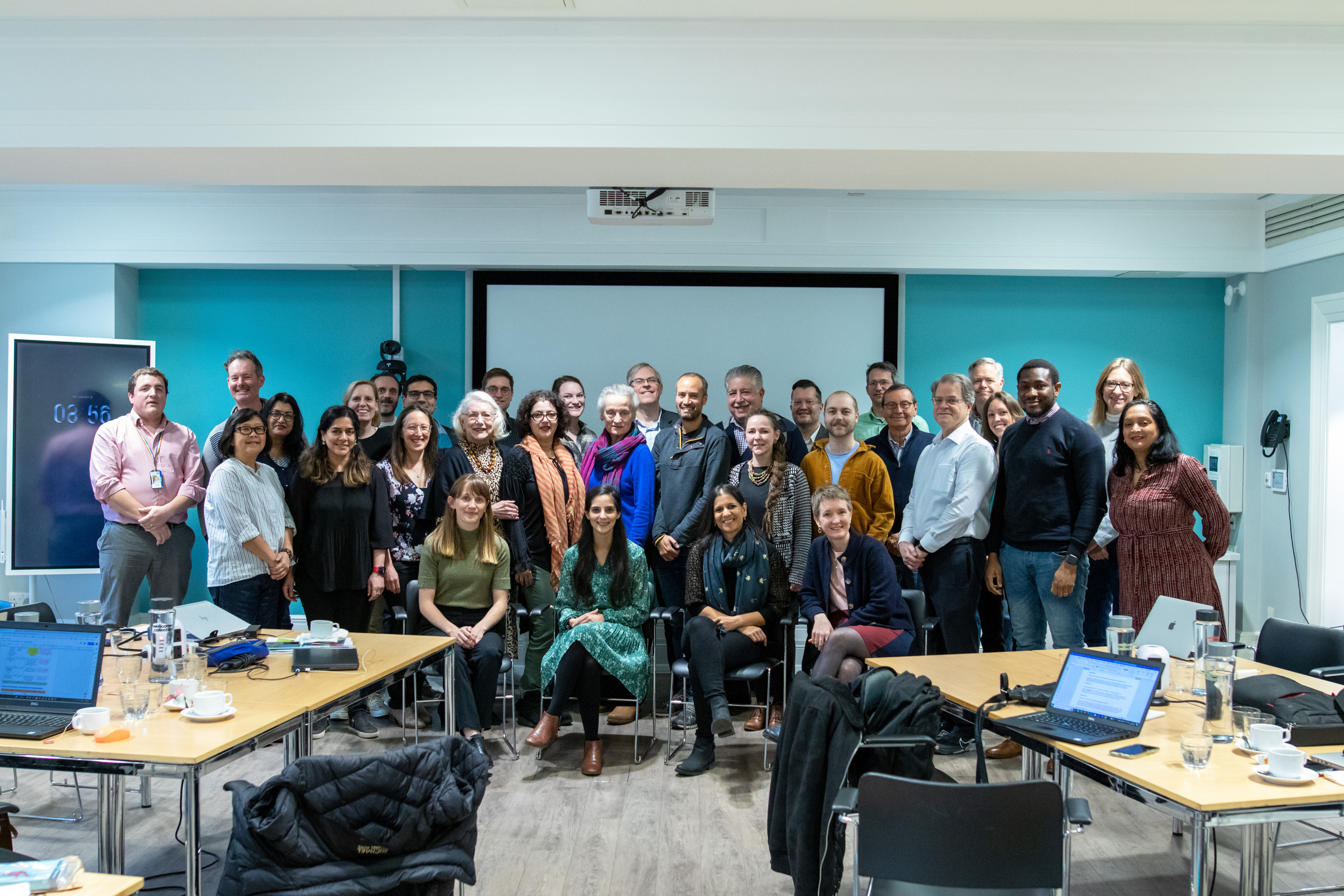
SEHRA launch: Revolutionising school eye health programmes
Read more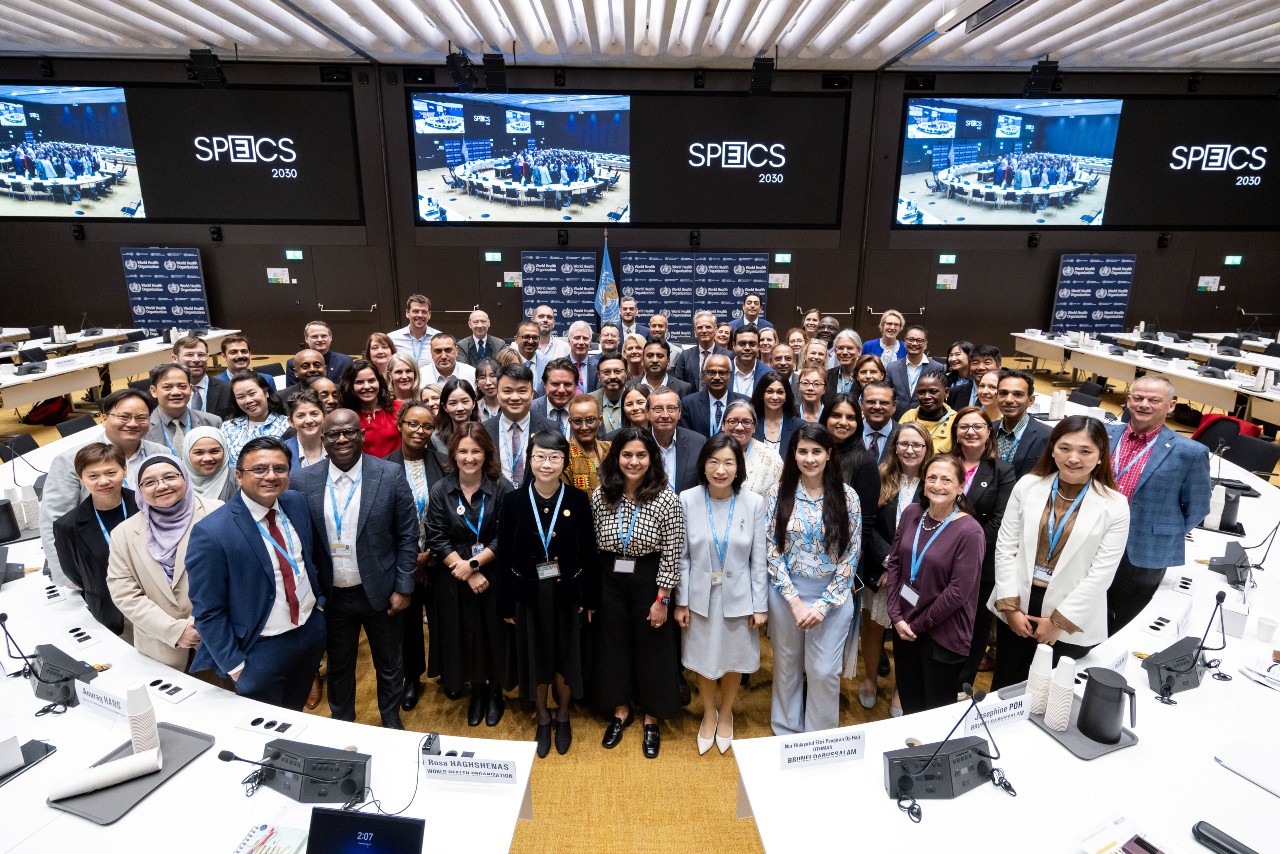
Peek joins leading eye health organisations to launch new WHO initiative
Peek Vision has joined leading eye health organisations in launching a new initiative led by the World Health Organisation (WHO).
Read more